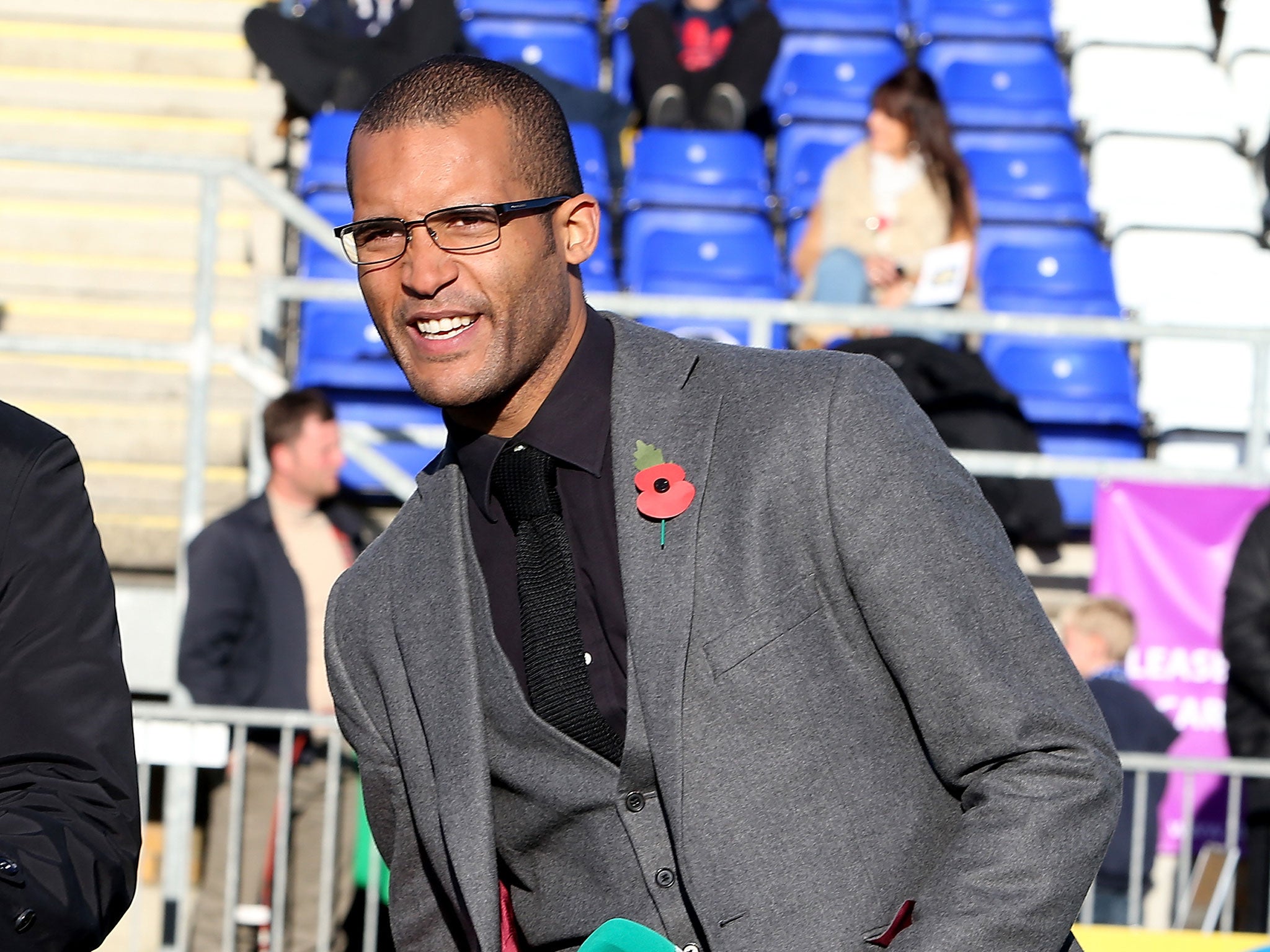Clarke Carlisle: No illness should carry a stigma
Openness about depression can only help those who suffer from it

When Stan Collymore went to his club manager back in the 1990s and told him he was suffering from depression the gaffer couldn’t quite see it. He was earning £20,000 a week: what did he have to be depressed about?
As the former footballer Clarke Carlisle confesses this week that he tried to kill himself before Christmas, it’s worth reflecting that while admitting to suffering from depression has been until recent years a sporting taboo it isn’t any more, thank goodness. A list off the top of my head of sportsmen who’ve talked about their problems would take in Andrew Flintoff, Marcus Trescothick, Jonathan Trott, Stan Collymore, Neil Lennon, Vinnie Jones, Ricky Hatton and Mike Tyson. Some, like Gary Speed and the goalkeeper Robert Enke, have taken their own life.
It’s been written so often that there’s a stigma surrounding mental illness that there probably isn’t any more. It’s now, I think, perfectly acceptable for the famous to speak out. In this country Alastair Campbell probably opened the door with his television programme on the subject in 2008, and Flintoff did something similar in 2012.
There is something of a history of mental health problems in sport: several dozen cricketers have committed suicide down the decades, and a few years ago in his autobiography Coming Back To Me Trescothick, a former England batsman, wrote about the psychiatric problems with which he’d been afflicted since suffering anxiety attacks at the age of 10. More than a few jockeys have killed themselves (partly, one school of thought says, because of the enforced dietary self-denial their calling entails). Meanwhile in his recent autobiography Tyson spoke about the depression and sense of self-loathing that has blighted his life since his difficult boyhood.
So why do some athletes get depressed? Ex-pros in several sports have spoken of the difficulties of retirement, the come-down from all those highs, the adjustment to a normal life. That plays a part, I’m sure, while not being a defining factor: most of the people I’ve mentioned suffered during their careers as well as after them.
Statistically speaking, a certain number sportspeople are inevitably going to suffer from depression. It’s an illness caused partly by inheritance, partly by chance, partly by circumstance, that pervades all classes, all sections of society. Just as a certain proportion of architects or accountants or bus drivers are going to suffer, so will a similar proportion of athletes. There may be exacerbating factors, but it’s an illness that can strike anybody. Even Churchill had his black dog.
The principal value of someone like Carlisle, Flintoff or Trescothick speaking out is that it might encourage other sufferers to get help. And it reminds us that sportspeople aren’t a breed apart; in the ways that matter they’re just like the rest of us.

Join our commenting forum
Join thought-provoking conversations, follow other Independent readers and see their replies